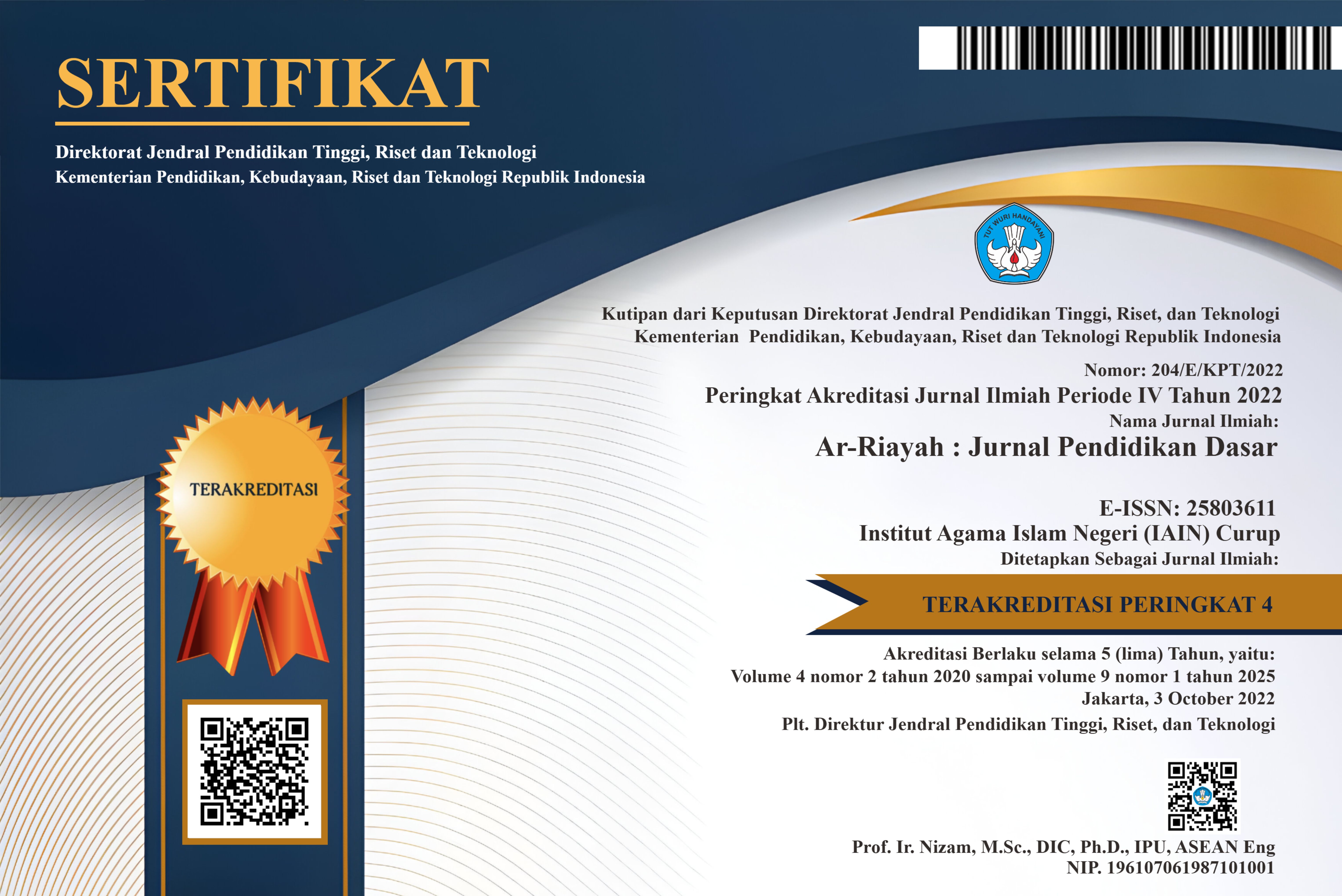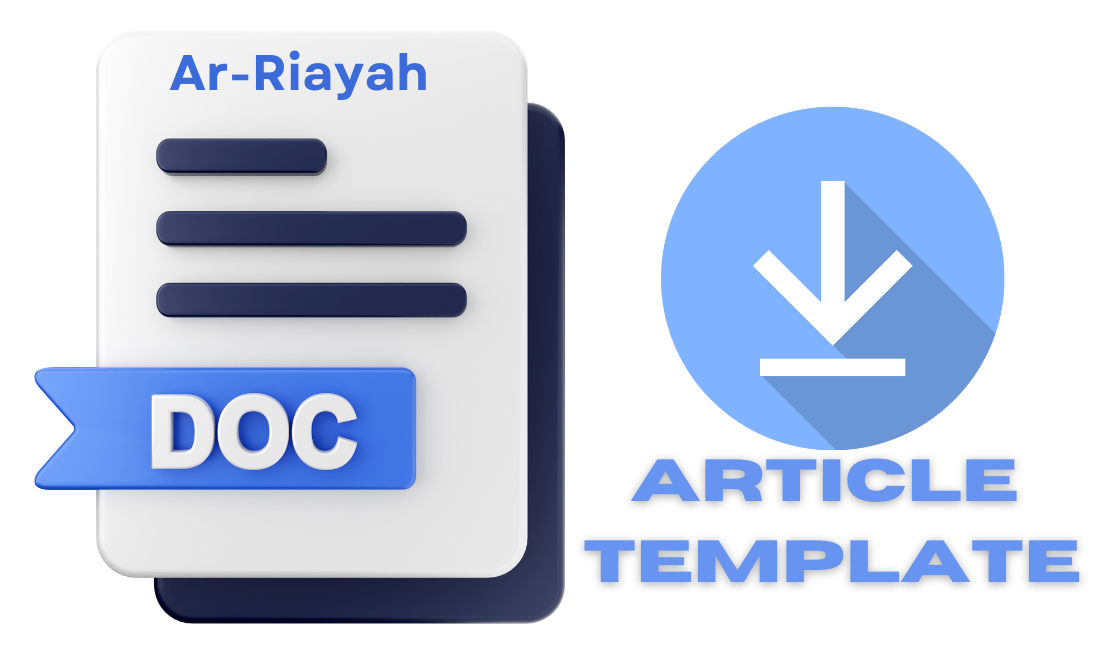Eksplorasi Konsep Matematika pada Eduwisata Taman Jam Gadang untuk Pembelajaran Matematika Siswa SD
DOI:
https://doi.org/10.29240/jpd.v7i1.6759Keywords:
Eduwisata, jam gadang, konsep matematika, siswa SDAbstract
Eduwisata jam gadang park, is a historic and interesting tourist spot, especially its beauty. Jam gadang park is one of the eduwisata found in the city of Bukittinggi. In addition to enjoying its beauty, this eduwisata can be used as a learning resource for students, especially elementary school students in the city of Bukittinggi. The purpose of this study was to explore the mathematical concepts that exist in the edu-tourism park jam gadang and then used as a learning resource for elementary school students. This type of research is qualitative with an ethnographic approach. Data were obtained by researchers through observation, interviews and documentation. The results of the exploration of the mathematical concepts of eduwisata taman jam gadang include; the concept of circle, square, rectangle, triangle, rhombus, clock number, and purchase price, selling price, profit and loss (social arithmetic). The mathematical concepts in this edu-tourism park can be used by teachers as a source of learning mathematics for elementary school students. The use of eduwisata jam gadang park as a learning resource can foster students' love of mathematics and local culture.
Downloads
References
Andari, Regita Dwi, Sri Wahyuni, Riski Kholif Arohman, and Moh Zayyadi, ‘Eksplorasi Eduwisata Garam Sebagai Metode Pembelajaran Matematika Era New Normal’, Lattice Journal : Journal of Mathematics Education and Applied, 2.1 (2022), 40. https://doi.org/10.30983/lattice.v2i1.5275
Auliya, Risma Nurul, ‘Kecemasan Matematika Dan Pemahaman Matematis’, Jurnal Formatif Jurnal IImiah Pendidikan MIPA, 6.20 (2016), 12–22
Fauzan, Ahmad, Fridgo Tasman, and Rozi Fitriza, ‘Exploration of Ethnomathematics at Rumah Gadang Minangkabau to Design Mathematics Learning Based on RME in Junior High Schools’, in Proceedings of the 2nd International Conference Innovation in Education (ICoIE 2020) (Atlantis Press, 2020), DIV, 279–283
Imamuddin, M., ‘Pelaksanaan Penilaian Autentik Di Madrasah (Studi Pada Guru Matematika Di Madrasah Tsanawiyan Negeri 2 Bukittinggi)’, Re-JIEM (Research Journal of Islamic Education Management), 5.1 (2022), 1–12. https://doi.org/10.19105/re-jiem.v5i1.6205
Imamuddin, M, and Isnaniah Isnaniah, ‘Perencanaan, Pelaksanaan, Dan Pelaporan Penilaian Autentik Oleh Guru Matematika Madrasah’, KARIWARI SMART : Journal of Education Based on Local Wisdom, 2.1 (2022), 9–19
Imamuddin, M, Isnaniah Isnaniah, Ade Putra, and Rahmadila Rahmadila, ‘Kemampuan Koneksi Matematika Siswa Dengan Pendekatan Kontekstual Di SMPN 1 Banuhampu’, Al-Khwarizmi: Jurnal Pendidikan Matematika Dan Ilmu Pengetahuan Alam, 7.1 (2019), 11–22. https://doi.org/10.24256/jpmipa.v7i1.560
Isnaniah, and M Imamuddin, ‘Ethnomathematic Exploration Of Minangkabau Batik Tanah “Liek†(Clay Soil Batik)’, International Journal Of Humanities Education And Social Sciences (IJHESS), 2.6 (2023), 2113–2119
Isnaniah, Isnaniah, Pipit Firmanti, and M Imamuddin, ‘Eksplorasi Konsep Matematika Dalam Tenun Songket Pandai Sikek’, Al-Khwarizmi : Jurnal Pendidikan Matematika Dan Ilmu Pengetahuan Alam, 10.1 (2022), 61–74. https://doi.org/10.24256/jpmipa.v10i1.1991
Isnaniah, and M. Imamuddin, ‘Pengembangan Soal Literasi Matematika Konteks Budaya Minangkabau Untuk Meningkatkan Literasi Matematika Siswa’, AKSIOMA: Jurnal Program Studi Pendidikan Matematika, 11.4 (2022)
Kadir, abdul, ‘Konsep Pembelajaran Kontekstual Di Sekolah’, Dinamika Ilmu, 13.1 (2013), 17–38. http://journal.iain-samarinda.ac.id/index.php/dinamika_ilmu/article/view/20
Makinem, ‘Pengelolaan Pembelajaran Matematika Model Paikem’, Manajer Pendidikan, 9.5 (2015), 709–714. https://ejournal.unib.ac.id/index.php/manajerpendidikan/article/view/ 1178
Mulhamah, Mulhamah, and Susilahudin Putrawangsa, ‘Penerapan Pembelajaran Kontekstual Dalam Meningkatkan Kemampuan Pemecahan Masalah Matematika’, Jurnal Pendidikan Matematika, 10.1 (2016), 59–80. https://doi.org/10.22342/jpm.10.1.3279.58-80
Prahmana, Rully Charitas Indra, ‘Permainan “Tepuk Bergilir†Yang Berorientasi Konstruktivisme Dlam Pembelajaran Konsep KPK Siswa Kelas IV A Di SD N 21 Palembang’, Jurnal Pendidikan Matematika, 4.1 (2010), 61–69
Priyanto, Rahmat, Didin Syarifuddin, and Sopa Martina, ‘Perancangan Model Wisata Edukasi Di Objek Wisata Kampung Tulip’, Jurnal Abdimas BSI: Jurnal Pengabdian Kepada Masyarakat, 1.1 (2018), 15. https://ejournal.bsi.ac.id/ejurnal/index.php/abdimas/article/view/2863
Rozi Fitriza, ‘Ethnomathematics Pada Ornamen Rumah Gadang Minangkabau’, Math Educa Journal:Jurnal Matematika Dan Pendidikan Matematika, 2.2 (2018), 181–190. http://ejournal.uinib.ac.id/index.php?journal=mej
Wahyuddin, Wahyuddin, and Nurcahaya Nurcahaya, ‘Efektivitas Pembelajaran Matematika Melalui Pembelajaran Aktif Tipe Everyone Is a Teacher Here (Eth) Pada Siswa Kelas X Sma Negeri 8 Takalar’, Al Khawarizmi: Jurnal Pendidikan Dan Pembelajaran Matematika, 2.1 (2018), 72. https://doi.org/10.22373/jppm.v2i1.4500
Wardana, Lalu Ali, Apriani, Baiq Mira Aulia Salsabila, M. Ainul Rizki Setiawan, Muh. Nazri, Nur’azizah, and others, ‘Pemanfaatan Taman Edukasi Sebagai Area Eduwisata Desa Padamara’, Jurnal Pengabdian Magister Pendidikan IPA, 5.2 (2022), 300–304. https://doi.org/10.29303/jpmpi.v5i2.1833
Wati, Meta Trisna, M Imamuddin, and Elvi Julfitri, ‘Deskripsi Kecemasan Matematika Siswa Ditinjau Dari Kemampuan Pemahaman Matematika Siswa Smp’, KOLONI: Jurnal Multidisiplin Ilmu, 1.4 (2022), 424–431
Yuwono, C, K Karsinah, Andin Vita Amalia, and Amidi, ‘Pemanfaatan Aplikasi BERKID-EXPLORER Sebagai Media Pembelajaran Matematika Di Desa Eduwisata Bergas Kidul’, Journal.Unnes.Ac.Id, 05.0 (2021), 13220. https://journal.unnes.ac.id/sju/index.php/ prisma/article/view/45226
Downloads
Published
How to Cite
Issue
Section
Citation Check
License
Authors who publish with Ar-Riayah: Jurnal Pendidikan Dasar agree to the following terms:
Authors retain copyright and grant the journal right of first publication with the work simultaneously licensed under a Creative Commons Attribution-NonCommercial-ShareAlike 4.0 International License (CC BY-NC-SA 4.0) that allows others to share the work with an acknowledgment of the work's authorship and initial publication in this journal.
Authors are able to enter into separate, additional contractual arrangements for the non-exclusive distribution of the journal's published version of the work (e.g., post it to an institutional repository or publish it in a book), with an acknowledgment of its initial publication in this journal.
- Authors are permitted and encouraged to post their work online (e.g., in institutional repositories or on their website) prior to and during the submission process, as it can lead to productive exchanges, as well as earlier and greater citation of published work (See The Effect of Open Access).










